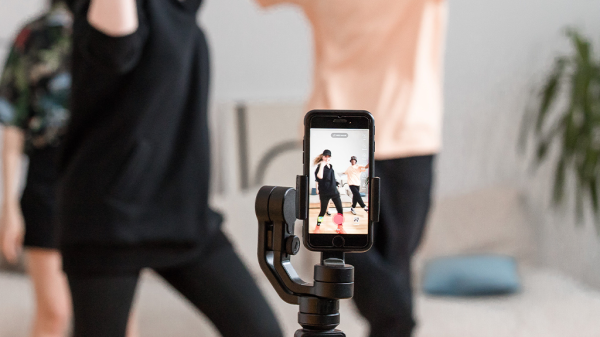
Our brains make us mean online
We’ve all seen or participated in the bullying of celebrities by complaining online about how horrible they are, or taken brands to task for their misdeeds, and it is done with such frequency and at such a high volume, one must pause to consider whether or not our society has become more abrasive?
Social networks are filled with a level of vitriol we can’t imagine would occur if we had to ‘say it to your face.’ But we don’t have to, and that changes everything. Our brains don’t do empathy well when we aren’t face to face.
Empathy is a big deal. It helps us understand how others feel so we can adapt to their needs. Empathy is what helps you keep your mouth shut when what you want to say would offend someone (and why you don’t mind opening it if that person isn’t present). Empathy is the bedrock of compassion, understanding, rapport building, friendship, and even business relationships.
How our brains are wired
We are hardwired for empathy through something in our brains called mirror neurons. These mirror neurons actually cause our brains to experience the emotions we see on the faces of others. When I smile, your brain lights up as if you are smiling. When I yawn, you yawn. When I am sad, you understand that sadness because your brain experiences it.
This is a very fast process your brain completes subconsciously. Labeled ’emotional empathy,’ it is rooted in the limbic system of our brain.
None of us like to experience sadness. We avoid it. We want to stop feeling it. These mirror neurons make our brains work for us to ensure that we play nice in the sandbox because when I make you unhappy, I have to feel unhappy. That’s good for me, for you, for the whole human race (literally).
Remove non-verbal cues that cause the mirror neuron magic and you remove the emotional empathy.
So is there any hope for social media?
Good news: there is another way for us to experience empathy. We can think using the executive center of the brain. This is called ‘cognitive empathy.’
The downside is that it’s a far more complicated, time consuming, and exhausting mental process. It’s like the difference between driving down the highway at 75 mph or using your feet because they were made for walking. Each can get you to your destination, but one is not like the other, and we give up easily when we are forced to go the more difficult route.
The more tired our brains are (in need of sleep, stressed, etc), the more likely we are to give up the long road of cognitive empathy. But that’s our only option when it comes to online communication. It’s cognitive empathy or bust – and unfortunately, we bust more often than we’d like to admit.
Is society doomed?
So what can we take from this info:
- People aren’t becoming more rude. This isn’t a ‘manners issue.’ It’s a brain issue. However, even if we don’t feel the consequences of our own brain suffering when we see others angry/sad/hurt by our statements, we still receive the consequences – broken relationships, reputational hits, reciprocal barbs.
- The more tired you are, the more likely you are to write negative tweets, send nasty emails, and post regretful comments on Facebook. If it’s negative, adopt a simple policy: If I still feel this way when I wake up, I will send this.
Our brains were wired to get along with others. It just wasn’t built for communication that was not fathomable even a decade ago. It’s time to understand what’s happening so that we can adapt to it.
Curt Steinhorst loves attention. More specifically, he loves understanding attention. How it works. Why it matters. How to get it. As someone who personally deals with ADD, he overcame the unique distractions that today’s technology creates to start a Communications Consultancy, The Promentum Group, and Speakers Bureau, Promentum Speakers, both of which he runs today. Curt’s expertise and communication style has led to more than 75 speaking engagements in the last year to organizations such as GM, Raytheon, Naval Academy, Cadillac, and World Presidents’ Organization.










































Pingback: The science behind getting people to like you - AGBeat
Pingback: How To Fix Corporate America's Meeting Epidemic by Forbes - Entrepreneurs - Serebral 360º
Pingback: How To Fix Corporate America's Meeting Epidemic - Karpedium